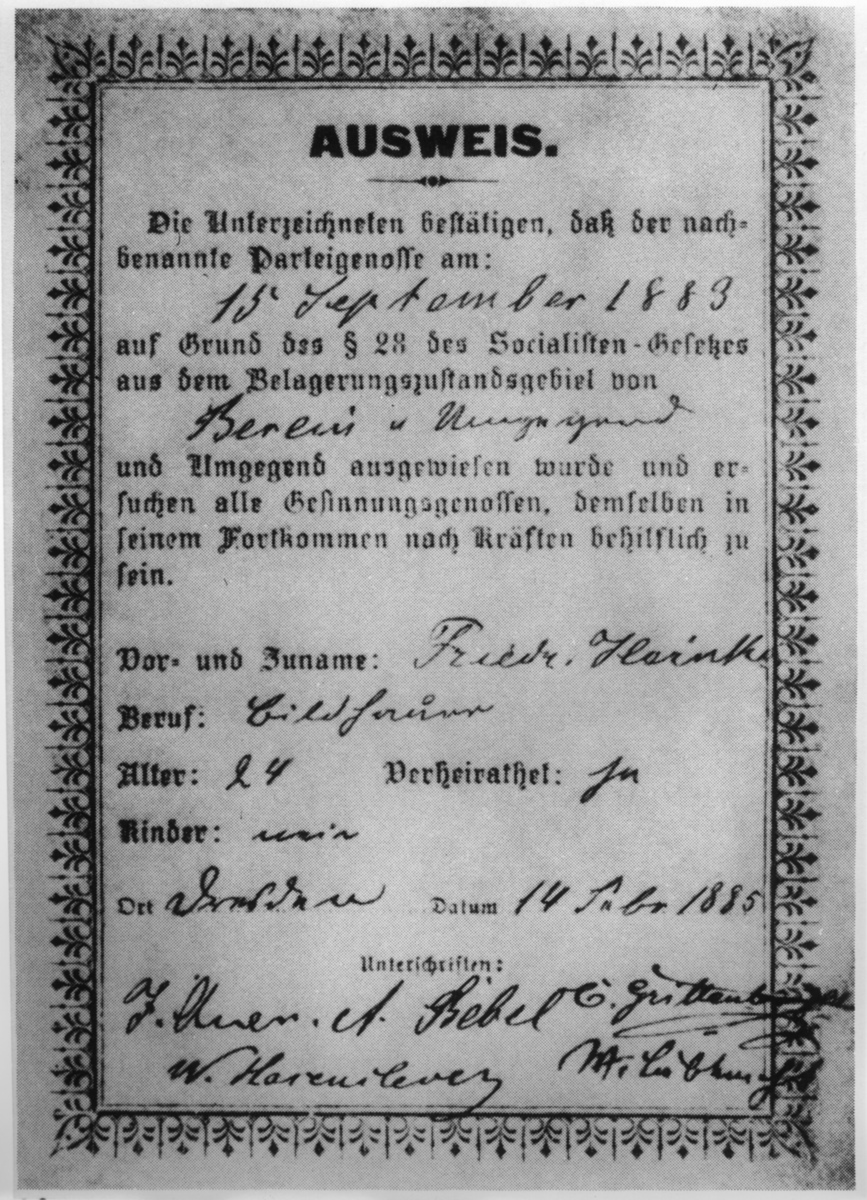Abstract
In Germany, personal identity papers are called an
Ausweis to this day. This facsimile
shows a “counter”-Ausweis, issued not
by state authorities but by the leadership of the outlawed Social
Democratic Workers' Party (SPD). The party was eager to provide
persecuted members with every assistance possible and the documentation
needed to secure it. According to this document, Friedrich Heinke, a
married sculptor, age 24, without children, was banished from Berlin and
its surrounding territory on the basis of paragraph 28 of the
Anti-Socialist Law, which provided for the imposition of a “minor state
of siege” [kleine
Belagerungszustand]—a kind of martial law—in particular cities.
Under this provision, Heinke had been banished from the imperial
capital, Berlin. Issued in Dresden on February 14, 1885, this
“safe-conduct” document asks all party comrades to provide whatever
support they can to its bearer. It is signed by the leading figures in
the party: Ignaz Auer, August Bebel, Carl Grillenberger, Wilhelm
Hasenclever, and Wilhelm Liebknecht.
